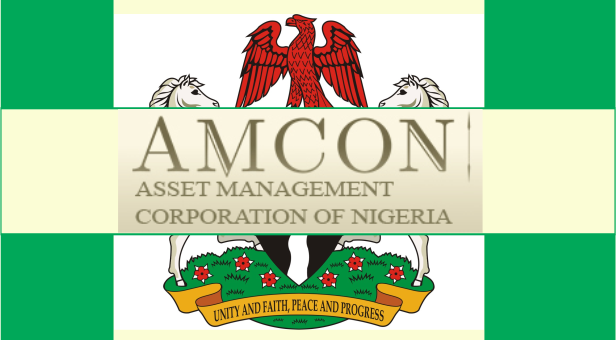- AMCON Recovers N731bn From Bank Debtors in Seven Years
The Asset Management Corporation of Nigeria recovered N731bn from bank debtors since its inception in 2010 to December 2017.
Out of this amount, properties accounted for approximately 35 per cent.
The corporation has restructured its processes from within in anticipation of better outcomes in a bid to rejig its asset sales strategy and facilitate speedy disposal.
The Managing Director/Chief Executive Officer, AMCON, Mr Ahmed Kuru, stated this at the opening of a two-day asset sales strategy retreat, which ended in Abuja on Thursday, according to a statement made available by the corporation’s spokesperson, Mr. Jude Nwauzor.
Kuru, who was represented at the opening session by the Executive Director in charge of Operations, Mr Aminu Ismail, stated that part of the strategy was to expand the scope of its sales strategy by engaging professionals from the real estate sector, including legal experts and regulatory stakeholders, and cross-fertilise ideas on better measures to follow to enable AMCON to dispose its huge assets at good value and in good time in line with its mandate.
He stated, “As you may be aware, one of the key objectives of AMCON is to obtain the best achievable financial returns for all assets acquired. Following the acquisition of eligible bank assets, AMCON is now saddled with the responsibility for recovering the bad loans, either through cash repayments or asset forfeitures/foreclosures.
“In fact, the bulk of recoveries, which have been recorded at AMCON, are in form of asset recoveries. Considering the fact that AMCON’s obligations to the Central Bank Nigeria is in the form of cash repayment, AMCON, therefore, has the responsibility of converting the assets into cash in order to meet the repayment obligations.”
Providing further clarification, Kuru added that AMCON from inception in 2010 to December 2017 recorded total recoveries of N731bn. Out of this amount, properties accounted for approximately 35 per cent.
On the flip side, he stated that the corporation noticed an increasing decline in its ability to dispose of assets at competitive market rates due to the several factors, including inflation, among other market dynamics.
With such indices, Kuru said, “At AMCON, we have realised that we cannot continue to do business as usual; it has, therefore, become imperative for us to seek more innovative ways of converting our huge portfolio of assets into liquid cash as quickly as possible.
“We have gathered some of the most resourceful real estate professionals and legal experts at this forum to help brainstorm through the issues and proffer practical solutions to the challenges confronting AMCON. We also invited critical regulatory stakeholders to contribute to the discourse towards finding workable solutions.”
The Executive Director in charge of Asset Management at AMCON, Dr Eberechukwu Uneze, who chaired the plenary session, stated that there was an urgent need to have professionals, experts and agencies collaborate with AMCON, because the corporation had a stockpile of assets, which it was finding difficult to dispose in the regular open market.
These assets, according to him, cut across critical sectors of the economy such as real estate, energy, transportation and aviation, maritime, agriculture and manufacturing, all of which he said must be disposed as quickly as possible against all odds the agency was facing.


 Forex3 weeks ago
Forex3 weeks ago
 Naira3 weeks ago
Naira3 weeks ago
 Billionaire Watch3 weeks ago
Billionaire Watch3 weeks ago



 Naira3 weeks ago
Naira3 weeks ago






 Naira2 weeks ago
Naira2 weeks ago




 Naira2 weeks ago
Naira2 weeks ago




 Naira4 weeks ago
Naira4 weeks ago






 Naira1 week ago
Naira1 week ago























